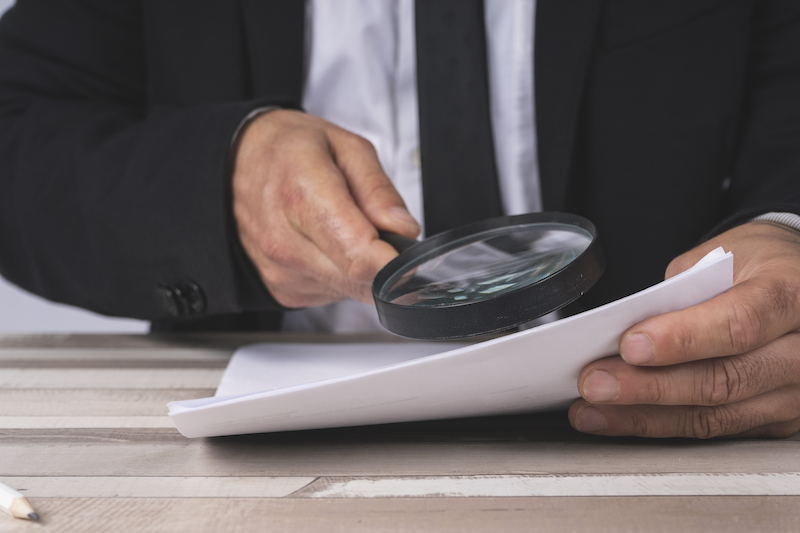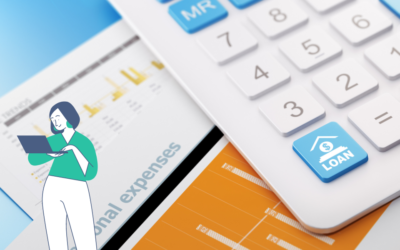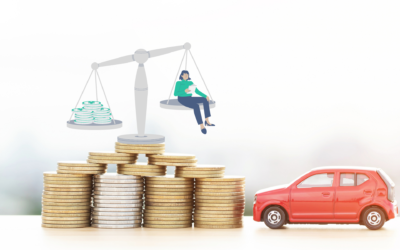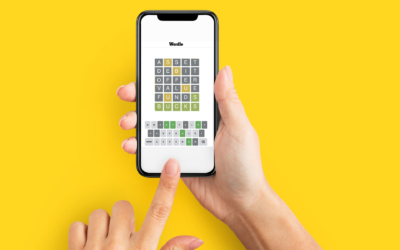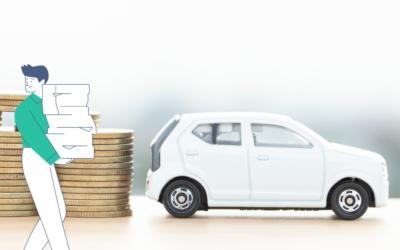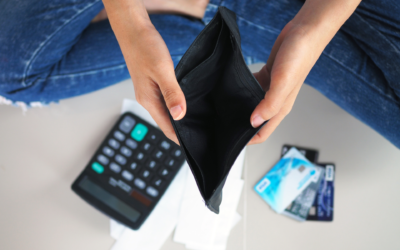Quick Tips For Better Financial Decisions
Sometimes, you only want a short “how-to” guide or a couple of steps to move your decision in the right direction. The Quick Tips learning environment will help you make your decisions when it comes to credit health, personal loans, savings, budgeting, and debt.
Featured Quick Tips
A-Z Dummy Guide Of Financial Terms
How to find legitimate and registered NCR lenders
With so many loan providers that want to sell you on their product, how do you safely choose which you can trust…
6 Ways To Take Control of Your Cash Flow
Building a better financial future starts with making better financial decisions when it comes to your cash flow….
The 5 Parts to How Your Credit Score Is Calculated
Credit scores can be confusing to understand. Have you ever wondered how your credit score is calculated…
What can you expect to learn with our Quick Tips?
It is easy to feel overwhelmed with financial decisions. Between the internet, friends and family, there always seems to be 10 different opinions on the simplest decisions you are trying to make. Sometimes, you only want a short “how to” guide, or a couple of steps to move your decision in the right direction. The Quick Tips learning environment will help you make your decisions when it comes to credit health, personal loans, savings, budgeting, and debt.
Below are some summaries of what you will learn in our quick tip articles.
What is Credit Health
Your credit health is a measurement of your ability to pay back loans or money that you have borrowed. It is determined by your credit score that usually ranges from 0 to 705. Having a healthy credit score is essential if you want to borrow money to buy a house or a car, or to get a mobile phone contract or open a clothing account.
What is a credit score?
Your credit score is a number attached to your personal credit report, which is calculated based on your ability to pay back any money borrowed. The higher the score, the better you look to potential lenders.
What is a credit report?
A credit report is a background on your credit history and financial situation. This credit report shows how you have managed past debts, what you borrowed the money for, and whether you paid it back on time or not. This helps creditors get a glimpse of your ‘creditworthiness’.
The type of credit score tips you can find on our “Quick Tips” guides:
5 Steps to building a credit record
The first step in getting credit is to ensure that you have a suitable credit record for credit-lenders to view. Here’s how to get your credit record off the ground:
- Apply for a credit card: Getting an entry-level credit card is a good start, as it can offer you a small line of credit, while giving you the ability to showcase how well you pay back your debts.
- Open a retail account: Opening an account at a retail store is very quick and easy, which will help contribute to your credit score. If you want to purchase a mobile phone or furniture, for example, just ensure that you open an account with a reliable retailer and pay any instalments on time, otherwise you’ll be creating a bad credit score, not a good one.
- Utility bills: Having your name on utility bills for household expenditure, such as water, electricity, rates, fixed landlines, etc.is a great step to helping build your record.
- Make it manageable: While there are a few ways to build a credit profile, don’t overdo it. Having too many lines of credit in your name doesn’t look good, so only opt for those reputable credit sources and make sure to pay all of them on time.
- Savings account: Just because you’re aiming to build a credit profile, doesn’t mean you can’t save too. Putting money into a savings account each month will show creditors that you have financial discipline and think ahead.
5 Steps to improving your credit score
- Use your credit card wisely: Having a credit card doesn’t necessarily mean you must use it. Try and avoid using the maximum credit that is supplied to you, and rather keep your balance to about 25% to 50% of the overall limit. This will show that you manage debt sensibly and aren’t impulsive.
- Consolidate debt: If you have a few debts every month that you need to repay, consider consolidating these amounts. There are services which can help you combine the money you owe to various debtors, and therefore making it easier to pay back, as you’ll be paying back one single debt/amount rather than a few.
- Pay on time: The best thing you can do to build a good credit rating is to ensure that you pay your debts on time.
- Lose what you don’t use: If you’re not using certain retail or credit accounts, clear any outstanding debt amounts and close them. Creditors look at all your credit providers, even if you’re not using them, which could make your profile ‘weaker’. Remember, the less credit against your name, the lower your risk.
- Keep an eye on your credit rating: If you want to improve your credit score, knowing where you sit and how that affects your creditworthiness is important. Use MyFinCheck to keep check your credit score for free.
What are loans?
With the credit services available in South Africa, personal loans are very common and accessible. But what exactly are they and what does such a loan mean? We’re here to help you break down everything you need to know about personal loans.
What types of loans are there?
Loans can come in all shapes, sizes, and with different conditions attached to them, but often, they fall into the following categories:
- Personal loans
- Home loans
- Car loans
- Small business loans
- Payday loan alternatives
These loans can come in either unsecured or secured types:
Unsecured personal loan – What makes an unsecured personal loan different from most other loans is that they don’t require assets as collateral; which means that you can take a personal loan without offering up personal items or assets. What this does mean, though, is that your eligibility for a personal loan is based on your creditworthiness and ability to pay back the loan, rather than what you own, along with repaying that loan with a higher interest-rate attached.
Secured personal loan – If you do have an asset, such as a car, house, or savings account, to offer up as collateral, you can opt for a secured personal loan. The bank will then have rights to seize your personal assets if you fail to repay the loan, however, you will get a far better interest rate for putting some assets on the table, so to speak, when negotiating.
The type of loan tips you can find on our “Quick Tips” personal loan guides
How to find the right loan?
To figure out which loan is better for you, check the interest rate of loan options available and make the right decision based on how fast you’ll be able to pay off the loan. This, along with the conditions of the loan, such as duration, collateral, and reliability of the lender, should be considered before choosing the right loan.
What factors influence your monthly loan repayment?
There are three key things that affect your loan repayment amount: the loan amount itself, the interest rate, and the loan term. Doing things such as making a larger down payment, improving your credit score, or choosing a different loan term can help alter the monthly repayment amount.
How do you pay off a loan quickly?
The best way to pay off a loan more quickly is to use any additional cash flow you have available to contribute to your overall owed amount. For example, if you need to pay R500 a month to your creditor but find that you have an additional R100 in your wallet due to saving, use that extra money and put R600 towards your repayment.
3 Ways a Loan can influence your credit score
Once you have a credit score and profile, any form of loaning or borrowing of money will affect your score.
- Paying on time will help improve your credit score, whereas paying late will hurt and lower your score.
- Reducing your overall owed amount will help improve your credit score too, as you’ll gain credit score points as you pay your balance down. Creditors will see this as a sign that you will reliably pay off your debt.
- Diversity of loans can influence your credit score. If you have different loans on your name, such as a car, home, and student loan, this is better than having an incredibly large personal loan on a credit card.
What is debt?
Debt is the amount of money that you owe to someone else, such as a private lender, bank, retail outlet, or institution. Taking credit, in the form of money through a loan, makes you indebted to that person.
What types of debt are there?
- Credit card
- Personal loan
- Home loan
- Car Loan
What is the difference between bad debt and good debt?
‘Good debt’ refers to money borrowed for productive or wealth-building assets, such as home, student, or business loans. ‘Bad debt’ usually refers to expenditure on credit cards or retail and consumer debt. If you get a home loan, this is ‘good debt’; if you borrow money to buy clothes, that is ‘bad debt’.
When does a loan become bad debt?
There are a couple of ways you can look at bad debt. A loan can become bad debt when the borrowed money is being used to purchase something that depreciates in value, such as a car. As soon as a car is purchased with credit and begins losing value, it becomes a bad debt.
Bad debt can also be debt that severely keeps you from having healthy finances and a future. When your debt is used to fund a lifestyle you cannot afford, or, you are stuck in serious debt cycles, this is usually seen as bad debt.
What is debt consolidation?
While having numerous loans may be overwhelming, debt consolidation advice is a great strategy to merge your debt into one single payment, allowing you to improve your credit score, and most importantly, get a better interest rate. Combining your debt into one single payment makes the process a whole lot easier and more approachable.
What is debt counselling?
If you’ve borrowed more money than you can afford to pay back and looking for some advice on how to negotiate and manage the owed amount, debt counselling is worth considering. Many institutions offer professional debt counselling and free debt advice to help those struggling with debt, so that you can put a repayment plan in place.
The type of debt free tips you can find on our “Quick Tips” debt guides
- 3 Types of bad debt advice
- 3 Types of good debt advice
- 5 debt management tips and advice to help you get debt free
- 3 Types of bad debt advice
What are savings?
Savings is typically seen as money you set aside for some type of saving goal or emergency expense. Many people also keep money in their savings category until they decide what to use it for.
What does it mean to save money?
Saving money may seem daunting to some, but what it means is budgeting in a manner which allows you to put away some additional money into a savings account. You can do this by cutting your costs on certain things (such as trying to minimise your grocery or cellphone bill). The trick to frugal living is to create a budget and stick to it.
Why should you save money?
Saving money gives you peace of mind and the ability to be flexible when it comes to spending. This additional saving can help you clear debts sooner and allow you to open up some investment opportunities with the extra money.
What’s the difference between saving and investing?
Most South Africans tend to conflate the idea of investing with saving. Putting money away for safekeeping (such as in a bank) is great and all, but that is saving, whereby you know that amount of cash is available when and where you need it. On the other hand, investing is when you use your money to generate more money through the purchasing of shares or assets.
The type of money saving tips you can find on our “Quick Tips” saving guides
- 3 powerful money saving tips
- 3 ways to save money on a tight budget
- 3 keys to frugal living
What is budgeting?
Budgeting is not something you just do, it’s something you have to continually practice. Keeping tabs on your spending vs. income is a delicate balance but having a budget plan can help you keep on top of your debts and save you money in the long run.
Why is it important to budget?
Budgeting can not only help you understand your outgoing and incoming money, but it can also showcase where you can save money, or help you understand what credit you’re eligible to apply for. Creating a budget spreadsheet can help with this.
What is included in a personal budget?
Your personal budget should include your income, a breakdown of all your expenses, and what you plan on saving. This can help you see where an imbalance is and help save money.
What’s the difference between your budget and your cash flow?
When looking at your personal finances, your budget should be a breakdown of the amount of money coming in and out of your account, and how you’ll be allocating that money to different expenses. Whereas cash flow is how much money you have available at any given time.
The type of budgeting tips you can find on our “Quick Tips” budgeting guides
- 3 powerful budgeting tips for beginners
- How to set up a budget for your money
- 5 parts to making up a personal budgeting plan
- How to create a personal finance budget spreadsheet
Personal money management may seem daunting, but with the right knowledge and info, getting your budget in order, managing expenses, applying for credit where necessary, and saving can become second nature.
More Popular Tips & Tricks
5 online courses to improve your personal finances
Whether you need to save for retirement, want to cut back on shopping or just need to come up with...
10 ways to save money before the festive season
When the festive season finally nears closer it becomes increasingly more difficult to save money....
What car can I afford on my salary?
We all want to be driving off the showroom floor in a set of shiny new wheels, but the reality is...
10 things to keep in mind when purchasing a car – your full guide
We are pretty sure there has been a moment in your life where you wanted to be in the next Need...
How to file your personal income taxes in 2023?
Let’s be honest nobody really likes the word tax, let alone actually spending time and energy...
Credit card guide – everything you need to know
Whether it’s for online shopping, getting by some months, or simply because it’s easier than...
5 Steps to Get a Personal Loan That’s Right for You
A personal loan is an ideal solution if you need to overcome a financial hump, whether it’s a...
Top 5 financial news sites in South Africa
Finding easy-to-read, relevant and trustworthy financial news in South Africa is a bit of a task,...
Top 5 personal loan calculators in South Africa
Sometimes life gives you lemons and you don't know how to make lemonade – and that could be where...
Top 5 car finance providers in South Africa
Buying a car is a big deal. With so many car loan options to choose from you might find it tough...
5 letter finance words to inspire your next Wordle game
Let’s be honest in between your long list of daily tasks, we are pretty sure you are taking a...
How Does Vehicle Finance Work in South Africa – The Full Guide
Did you know a bad vehicle finance agreement is one of the number 1 reasons people in South Africa...
Good vs bad debt – how to know the difference for young professionals
If you, like many others, have done a quick Google search on “what...
Bad credit? How to qualify for a personal loan
Getting a personal loan with bad credit can feel like a challenge. Most of us have heard...
How to get a free credit report in 5 easy steps
“Where do I even begin?” This is a common question we ask ourselves when...


